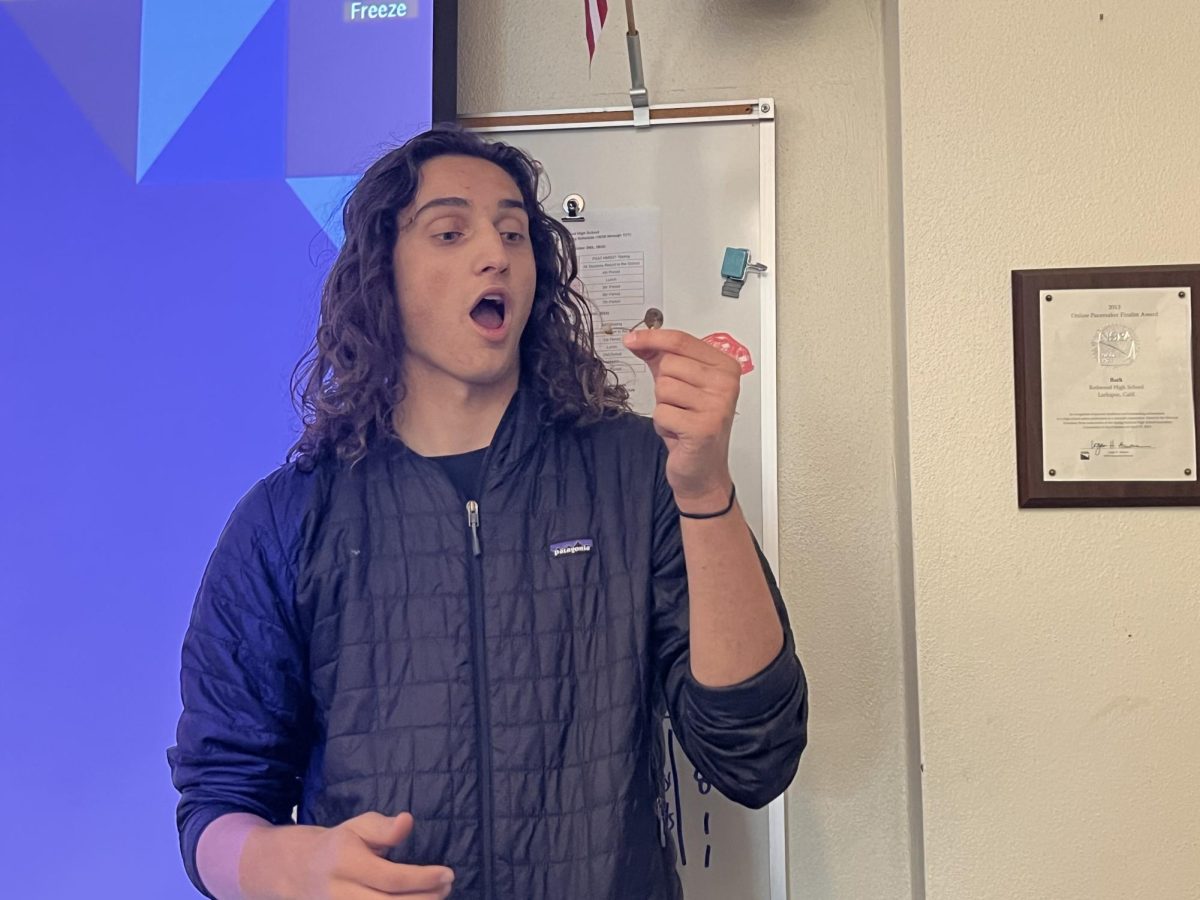Face-to-Face is a feature that allows two members of the Redwood community to grill each other, argue, or simply converse about a relevant issue or event. We provide the topic, and they do the rest. This month’s participants are junior Caitlin Donnelly and junior Ladia Jirasek. The two discuss the consequences of technology in the classroom.

Do you think students should be allowed to use their phones in class as a learning tool?
Caitlin Donnelly:
Yes, because if you don’t have access to a computer because the computers are used by another teacher and you need to look something up, you should be able to do it. Or you shouldn’t have to do it through a textbook just because the teacher wasn’t able to get a laptop. You should be able to look it up regardless.
Ladia Jirasek: If you’re going to use a learning tool it should be a computer [instead of a phone] because teachers have lessons and they should be able to figure out with other teachers when to share the computer time. When you’re using phones, you could use it as a learning tool but there are a lot of distractions. Since it’s your own, you may play games, check Instagram, start texting or something. That could really hurt the process of learning.
CD: If you have a limited amount of time to do an assignment and you’re going to get graded down because you couldn’t complete it, and it’s faster to do it with your phone, I feel like you should be able to do it with your phone.
Do you think in the future technology will take over a classroom? Would that be a good thing or a bad thing?
LJ: I think it will. It could really be both because it could help, but there are always so many distractions. If you’re watching a video you could easily veer off and start watching something that you like that’s not even pertinent to what you’re learning about.
CD: I think there will always be teachers, and I think as our technology progresses it’ll be more integrated into the classroom.
Do you think students learn better with the integration of technology?
LJ: Yeah, I do. We’ve been using technology all throughout school because we have it and we have access to it. All the stuff that we’ve done we wouldn’t have been able to do without technology.
But not phones?
LJ: No.
CD: Technology in general has supplemented learning because [now] you have many different methods of learning. You can make a presentation. You can make a website. You can make a video. There’s a lot of different options you have with technology and I think a phone supplements learning.
So overall you think that phones should be allowed in the classroom?
CD: Yes, because I think it’s a faster way of getting to information and if you use it as a distraction that’s going to show in your grade. So, I think there’s already an incentive not to be distracted on it. And if you decide to be distracted then that’s on you.
LJ: Phones serve as a distraction. You could easily use a computer in place of a phone. There are much less distractions because you don’t have all the things that you have on your phone.
CD: You’re arguing that [the reason] computers are better than phones is that they’re less distracting? But I would argue that they’re equally distracting because you can just go on a different website than what your teacher prompted. It’s not like they fool-proofed a way to keep students on track of what they’re supposed to be learning.
LJ: With a phone you have direct access to it right away. With the click of a button, you’re off track checking Instagram. With a computer, there’s so many more steps you need to take, and many people won’t do that. Technology overall can be used as a distraction.
So students should be responsible enough to know that they should be focusing?
CD: That’s why I think a phone is fine in class because as you age and mature, you become more responsible and I think if students are encouraged to use the phone as an educational device, they will. And if they get slightly distracted it shows.











